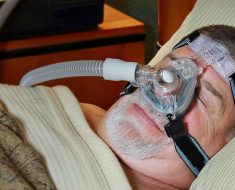
Salt therapy, or halotherapy, has been around for ages. The therapeutic treatment was actually developed in 1843 in Poland after it was discovered that miners who worked in salt mines had no respiratory or lung problems compared to other miners (via NBC). And although there are varying opinions on whether or not this form of therapy is really just a placebo effect, people continue to visit salt caves in hopes that it will help their asthma, eczema, hay fever, cold and flu, snoring, stress, anxiety, and sports performance, among other things (via Salts of the Earth).
What happens in a salt therapy room?

Some spas simply have a salt room while others dedicate their entire facility to salt caves. Both caves and rooms are designed to be cozy with dim lights, calming music, and reclining chairs. While the entire room is made of salt, a halogenerator outside the room also grinds dry salt and fills the 70 degree room with micro particles (via U.S. News). Visitors breathe in this salt-filled air while relaxing their minds for approximately 20 to 45 minutes (via Breathe Salt Room). The inhalation of the salt thins the mucus, which is said to make it easier to expel any pollutants, germs, or debris (via Salts of the Earth).
Does salt therapy really work?
There isn’t much scientific proof that salt therapy really works to treat all the conditions it claims to. Dr. Niket Sonpal, assistant professor at Touro College of Medicine told NBC, “Halotherapy may be a relaxing spa treatment, but there’s little evidence about how well it works. Most doctors are still skeptical, including myself.” Sonpal, however, does admit that the therapy can have an effect on mental health, even if it is a placebo effect.
Pulmonologist Dr. D. Kyle Hogarth from the University of Chicago Medical Center told ABC that even though there isn’t any hard evidence proving salt therapy works, and that he thinks any respiratory benefits are temporary, he sees no harm in it. “From my perspective, there really is no risk to being in a room full of salt as long as you are not eating it. If it helps you breathe better, you know in addition to the medications you are on, I got no problem with it. It’s your money and if you want to spend it to go sit in a cave, go ahead,” he said.
While there are scientifically proven natural remedies, there’s still a lot to learn about the validity of halotherapy. If you’re looking for a relaxing getaway, salt caves may be your answer. But if you’re looking to cure your asthma, don’t depend on this method to magically cure your woes.
Source: Read Full Article






